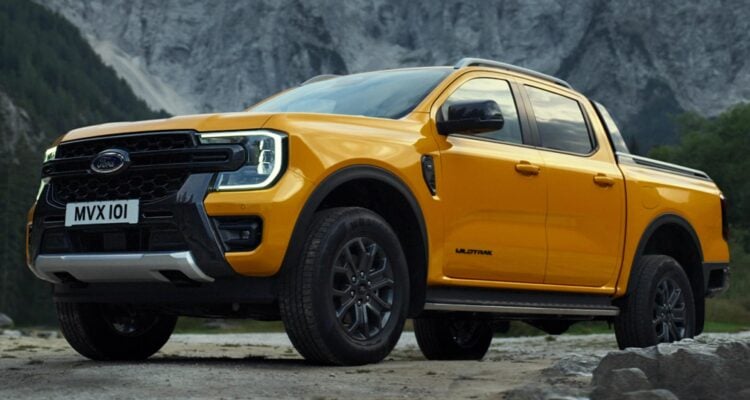In the recent budget announcement on 30th October, a significant change was introduced to the taxation of double cab pickup vehicles (DCPU). These vehicles, which have traditionally been classified as goods vehicles, will now be treated as company cars for tax purposes.
This reclassification means that drivers will be liable to a higher Benefit in Kind (BiK) tax, a development expected to impact businesses across the UK.
Goods Vehicles to Company Cars
The previous government attempted to make this change in February 2024 but were forced into reversing that decision after a backlash from the motor industry.
Double cab pickup vehicles were treated as goods vehicles for tax purposes, meaning they were subject to a flat-rate van BiK tax. This system was designed to acknowledge their primary use as utility vehicles, providing businesses with affordable access to transport for operational needs.
The new classification treats these vehicles as company cars, resulting in BiK tax rates that are significantly higher and determined based on emissions and vehicle price. The government’s reclassification aims to address what it views as a grey area, where pickups were increasingly being used as dual-purpose vehicles, often for personal use in addition to business operations.
The Budget Red Book confirmed that the existing capital allowances treatment will apply to those who purchase double cab pickups before April 2025. Furthermore, the transitional benefit-in-kind arrangements will apply for employers that have purchased, leased or ordered a double cab pickup before 6 April 2025. In this case, they will be able to use the previous treatment, until the earlier of disposal, lease expiry, or 5 April 2029.
Financial Implications for Businesses
Increased BiK Tax Liability
Under the new rules, employees using double cab pickups for work will now face a higher BiK tax. For many drivers, this will translate to thousands of pounds in additional tax annually. For businesses, this means that employee compensation packages including a double cab pickup as a benefit may need revaluation, as the increased tax burden may impact employee take-home pay and satisfaction.
Higher National Insurance Contributions
Employers are likely to see their National Insurance (NI) obligations increase as well. When BiK tax on a vehicle rises, employers are required to pay additional Class 1A NI contributions. This could lead to substantial additional costs, especially for businesses that maintain a fleet of double cab pickups as part of their operations.
Effect on Fleet Management Costs
For businesses in construction, logistics, and other industries where pickups are often a practical choice, the new rules could necessitate a rethink in fleet composition.
Double cab pickups are valued for their versatility, but if their tax burden increases sharply, businesses may opt to replace these vehicles with either traditional vans, which still benefit from lower BiK taxes, or electric vehicles (EVs), which enjoy lower tax rates due to their emissions benefits.
Ian Smith, MD, XL Marketing said: “If “ordered” before the rule change, a Toyota Hilux Invincible X 2.8 Auto as an example, would be treated as a commercial vehicle, taxed at a flat rate of £3,960 for 2024/25. For a 40% taxpayer, this would mean an annual BIK tax of £1,584.
“If ordered after April 2025 as a company car: With a P11D value of £47,542 and CO₂ emissions of 259g/km, the BIK rate would be 37%, totalling £17,591.
“For that same 40% taxpayer, this equates to £7,036 annually, an increase of £5,452 vs the current tax rate.
“Whichever pickup you currently enjoy as a company vehicle, if you are going to be in the market in the next 12-months, I would strongly advise getting a replacement on order sooner rather than later.”
Nigel Huddleston, Financial Secretary to the Treasury, said: “We will change the law at the next available Finance Bill in order to avoid tax outcomes that could inadvertently harm farmers, van drivers and the UK’s economy.”
Anthony McFarlin, tax director, MHA said: “The Budget announcements have unfortunately revisited the fiasco from 8 months ago when HMRC said that double cab pick-up vehicles (“DCPUs”) will be treated as cars for tax purposes. This caused a huge backlash and the Conservative government at the time quickly reversed the plans after saying they had “listened carefully to views from farmers and the motoring industry on the potential impacts of the change in tax-treatment”.
“The position has changed again under the Labour government who proposed in the notes to the Autumn 2024 Budget to treat DCPUs with a payload of one tonne or more as cars for certain tax purposes. From 1 April 2025 for Corporation Tax, and 6 April 2025 for income tax, the proposals mean that DCPUs will be treated as cars for the purposes of capital allowances, benefits in kind, and some deductions from business profits. The benefit in kind and capital allowance changes in particular will have a major impact on the core market buyers of these vehicles.
“The existing capital allowances treatment will apply to those who purchase DCPUs before April 2025. Transitional benefit in kind arrangements will apply for employers that have purchased, leased, or ordered a DCPU before 6 April 2025. They will be able to use the previous treatment, until the earlier of disposal, lease expiry, or 5 April 2029.”



















Blue Chilli Car Contracts Ltd
( Friday, November 8, 2024 - 15:48 )
Totally unhelpful attitude from this Government and looking for any way they can pull in more tax…. of course they’ll blame the prvious lot but it is still the workers of GB that ultimately suffer…… Crew cab vans may be your way forward.
I have many customers with pickups on orderand will look at all relevant options for them…… Good luck with your fleet
Mark Havens
( Sunday, November 3, 2024 - 17:44 )
I run 4 door pick ups within my business, so we can carry tools and 3 or 4 staff to site, with tne new rules i suppose i will need to dispose of my 4 door trucks and take 2 vehicles to site to have the same staff on site, them my fuel costs etc rise and my carbon foot print doubles, where is the sense in all this i thought the government wanted less pollution not more, 1 vehicle on the job has now turned in to to 2 vehicles
Mark Havens
( Sunday, November 3, 2024 - 17:43 )
I run 4 door pick ups within my business, so we can carry tools and 3 or 4 staff to site, with tne new rules i suppose i will need to dispose of my 4 door trucks and take 32 vehicles to site to have the same staff on site, them my fuel costs etc rise and my carbon foot print doubles, where is the sense in all this i thought the government wanted less pollution not more, 1 vehicle on the job has now turned in to to 2 vehicles